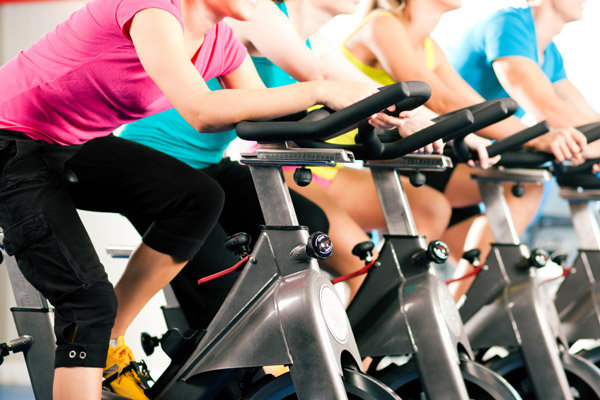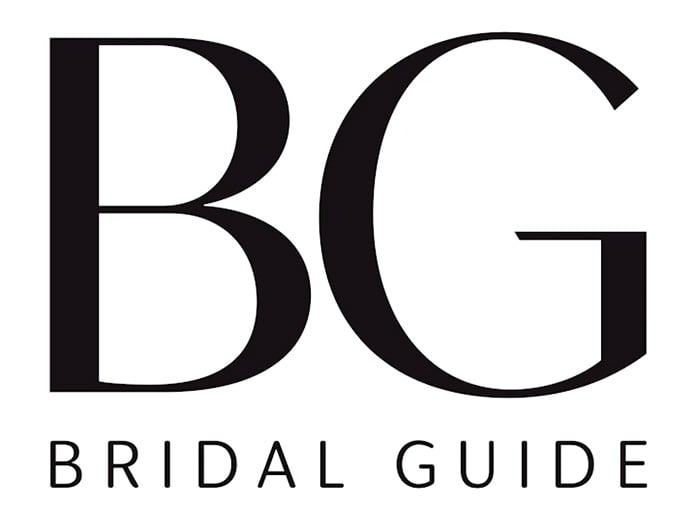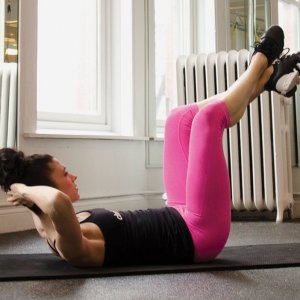
Photo Credit: iStockPhoto
I pride myself in not just training brides, but educating them in a way that ensures good health and fitness for a lifetime. It's important to me that I give you everything you need to be successful — with a little help from me, you will encounter a relationship with exercise as rewarding as with the love of your life. Here, learn the most common fitness mistakes that can easily be avoided.
Believing that health and fitness are the same.
This misconception is the reason most people experience the frustration of working out religiously and still holding onto the same 10 pounds year after year. If I had a dollar every time a client has made that complaint... To be clear, health is defined as the state where all the systems of the body — nervous, muscular, skeletal, circulatory, lymphatic, etc. — are working in an optimal way. Fitness is the physical ability to perform athletic activity. For example, are you running to get in shape (good health) or to compete in a marathon (fitness)? I am not saying you have to choose between health and fitness, but always put your health first if you wish to achieve lasting physical fitness.
Skipping the warm-up.
Muscles need time to adjust to the demands placed on them during exercise. Before hitting the weight room or jumping into your regular cardio workout, you should take a few minutes to gently walk, bike, or whatever you choose to prepare the body for heavier activity. Breaking a light sweat will get your blood pumping, warm up muscles and ligaments, greatly reduce your risk of injury, and increase the effectiveness of your workout.
Ditching the cool-down.
Due to time constraints, many people head straight to the showers after their last repetition or as soon as the timer on the stair climber dings. Instead, take a few minutes to lower your heart rate close to its resting rate. This will reduce your risk of injury and give you a few minutes to incorporate some relaxation into your routine.
Not stretching.
Flexible muscles are far less likely to be pulled than tight ones. Stretch before a heavy workout or after your workout as a cool-down. Never stretch a muscle without warming up first to reduce your risk of injury even further. Regular stretching greatly increases your flexibility.
Focusing on quantity, not quality.
Please pay attention to your form. I realize it's hard enough to find time for the gym without the added pressure from a trainer (me) telling you that you need to put you mind into it. But weightlifting is more than just grunts and sweat. There is a large mental component associated with this activity, and harnessing your mental acuity can substantially improve results while decreasing the potential for injury. Stop daydreaming, and let’s get to work!
Just doing cardio and skipping the toning.
A well-designed strength training program helps you manage and lose body weight, decreases injury risk, and keeps you functional and independent as you age. Aim to exercise each muscle group at least two times a week with rest between days. Use a variety of resistance-training equipment. Strength-training combined with cardiovascular and flexibility training provides the benefits of a total fitness program.
Lifting too much, too fast.
Placing demands your muscles are not prepared to handle is the best way to injure yourself. Gradual, progressive resistance is a far more effective and safe way to increase muscle strength. You should select a weight that allows you to do 10–15 repetitions. If you can’t do 10 reps, the weight is too heavy. If you can do 15, then increase the weight by five percent.
Using too light of a resistance.
If you are doing over 15 reps or have not increased your resistance in over two weeks on a regular program, it is time to progress. If you want to improve, you have to keep your muscles stimulated. If you continue to do the same weights with high reps, you will maintain your current physique and not advance. Which leads me to my favorite misconception of all time...
Worrying about bulking up.
Only about 10 percent of women will build large muscles, and that's due to genetics. If you are one of the 10 percent and don't want to gain muscle bulk, concentrate on high repetitions, low weight, and variety in your aerobic exercise routine. Focus on how good exercise makes you feel and not how you would like to look. Accept your body for what it is and not on other standards.
Overtraining
Overtraining is not the way to get results and can actually inhibit your progress. Even the Energizer Bunny will run down. Any fitness professional worth their fee will tell you that lifting weights is stressful to the body, and the body needs time to recover. It is between your workouts that your muscles not only repair but also grow stronger and more defined. Excess stress, either physically or mentally, takes its toll on your body. The body responds to stress by secreting hormones such as cortisol A and epinephrine. These body chemicals can have catabolic effects, both physically and emotionally. Physically, you burn less fat and your immune system becomes compromised. Psychologically, you will experience increased irritability, depression, and fatigue. Think about this for a moment — the wedding plans are already contributing to the release of these hormones. Do you really want to burn the candle at both ends?
Overdressing
Wearing too many clothes or plastic neoprene sweat suits (yes, people still do this) under the belief it will help you lose weight is not only foolish, it is very dangerous. When you work out, your body turns up the heat. Your muscles are like little furnaces, thermodynamically converting calories into energy to fuel your effort. And you get hot. As that happens, your body has to maintain your core temperature to keep your internal organs cool, so it generates sweat that evaporates off your skin and naturally cools you off. Mother Nature creates this miracle of efficiency in our bodies, and it's not nice to fool with Mother Nature. Wearing these less-than-fashionable neoprene sweat suits interferes with this grand design. You generate more heat which, in turn, generates more sweat. You will absolutely lose weight, but the weight you will lose is water. As soon as you take your first sip from your sports bottle, hello weight gain! Ultimately, you will be in a dehydrated state for up to 48 hours. Dehydration is not a good thing! Which of course leads to my next common mistake...
Waiting until you are thirsty to drink.
Only camels can go without water. For the rest of us,it's a necessity! Don’t wait until you feel thirsty — you are already dehydrated at that point. Drink plenty of fluids before, during, and after your workout.
Heed these basic cautions to help you on your way to a healthier body and soul. Slow and steady wins the race in the gym. Always listen to your body. Abnormal heartbeats, pain, chest pressure, dizziness, light-headedness, nausea, prolonged fatigue, or insomnia following intensive exercise are signs of an overdone body.
Now you are equipped to pursue your active lifestyle. The only thing left is to just do it... safely. Questions? Email me at [email protected].
—Bonne Marcus
 Guest blogger: Bonne Marcus
Guest blogger: Bonne Marcus
A fitness industry expert for 27 years, Marcus holds numerous certifications from the Aerobic Fitness Association of America (AFAA), including Step, Spin, Bosu™, Pre/Post Natal, Youth Fitness, Aqua, and Personal Training. She has taught for New York City’s top health clubs, including Crunch, New York Health and Racquet, and Reebok Sports Club. A recognized name on Long Island, Bonne has taught at Dany Holdstein’s Two Worlds, North Shore Health Club, LA Fitness, Sport time, Equinox and currently teaches at the Sid Jacobsen JCC in Roslyn. Learn more at getfitwithbonne.com.
- adminbg's blog
- Log in or register to post comments







